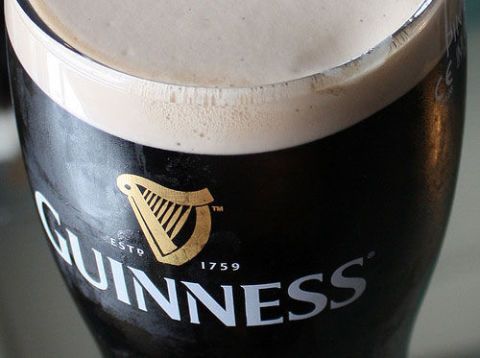Vodka has a neutral taste and odor. It is typically described as having a slightly sweet, smooth, and sometimes oily flavor. However, the taste can vary depending on the brand and quality of vodka.
Know More About what does vodka taste like
Vodka: An Elixir of Elegance and Simplicity
Vodka, a timeless alcoholic beverage, holds a special place in the hearts of millions across the globe. Renowned for its versatility and ability to elevate any cocktail, it is often described as a liquid paradox—clear as crystal yet potent in flavor. Let us embark on an exploration of this iconic spirit and unravel the enigma that is vodka.
Derived from the Slavic word “voda,” meaning water, vodka epitomizes simplicity and purity. As we take our first sip, the initial impression is one of a subtle, neutral taste. The absence of pronounced flavors allows the natural characteristics of the key ingredient, typically grains like wheat, barley, or rye, to shine through. This delicate, almost creamy essence serves as a canvas, beckoning the cocktail enthusiast to enhance it with a hint of their own creativity.
The smoothness of vodka is unparalleled, sliding effortlessly over the palate. It dances between sweet and savory, captivating both the novice and the connoisseur. The tiny molecules of alcohol whisk their way across the taste buds, leaving behind a gentle warmth. It is this mild heat, often referred to as the “vodka burn,” that reminds us we are sipping an exquisite spirit.
Furthermore, the texture of vodka is velvety, almost silky. Its viscosity coats the mouth, creating an indulgent and luxurious experience. As it glides over the tongue, it imparts a moist sensation, akin to a tiny droplet caressing the parched earth during a summer rain.
Interestingly, the purity of vodka also plays a significant role in its flavor profile. Distillers painstakingly filter the spirit using various methods, including charcoal, activated carbon, and even diamonds. These meticulous processes grant vodka its immaculate clarity and soft mouthfeel, further enhancing the taste.
While the inherent character of vodka is captivating, it also possesses a remarkable ability to adapt to the myriad ingredients it encounters. Whether it is mixed with vibrant citrus fruits, fragrant herbs, or other spirits, vodka proves itself a skilled chameleon, effortlessly intertwining with its companions, yet never overpowering. In the hands of a skilled mixologist, this elixir can be transformed into a vibrant cosmopolitan, a refreshing Moscow mule, or even a classic martini, each eluding to the unassuming nature of the spirit itself.
Another significant attribute of vodka lies in its charm as a standalone sipper. Those who appreciate the subtle complexities of the spirit often indulge in tasting the subtle notes that emerge with each wave of flavor. From the earthy tones of wheat to the robust undertones of rye, each grain lends its own unique personality, enticing us to explore and appreciate the artistry that goes into crafting this remarkable libation.
In conclusion, vodka represents the epitome of elegance and simplicity. Its taste is one that captivates with its neutrality, allowing the natural flavors to shine while simultaneously adapting effortlessly to any mixture. From its smoothness to its impeccable clarity, every aspect of vodka seems tailored to ignite the senses and offer an unparalleled drinking experience. So next time you raise your glass of vodka, take a moment to savor the liquid paradox that is as rich as it is understated.
FAQs on what does vodka taste like
1. What does vodka taste like?
Vodka is known for having a relatively neutral and smooth taste. It is characterized by a mildly sweet and grainy flavor with a hint of alcohol, but most of its taste depends on the purity or filtration process.
2. Does all vodka taste the same?
No, not all vodkas taste the same. Different brands have their unique characteristics and production methods, leading to variations in taste. Some may have a smoother profile, while others might have distinct notes of rye or wheat.
3. Is vodka flavorless?
While vodka is often considered flavorless, it does have a slight taste, primarily influenced by the ingredients used during distillation, such as grains (wheat, barley, or rye). However, its taste is usually less pronounced compared to other spirits.
4. Can you describe the flavor profile of vodka?
Vodka’s flavor profile is generally mild, crisp, and clean. It lacks the strong flavors found in other spirits like whiskey or gin. The taste can vary from subtly sweet to a slight bitterness, ultimately determined by the quality and ingredients used in the production.
5. Does vodka have a strong alcoholic taste?
Vodka, being a distilled spirit, contains alcohol. However, compared to other spirits like whiskey or rum, it typically has a milder alcohol taste. The alcohol is often well-integrated, making vodka smooth and easy to sip.
6. Can flavored vodkas taste differently from regular vodka?
Yes, flavored vodkas have added natural or artificial flavors that can significantly alter the taste. Flavored vodkas can offer a wide range of flavors, such as fruit, herbs, spices, or even chocolate. These additions can enhance or mask the original vodka taste, depending on the flavoring used.
7. Is there any aftertaste when drinking vodka?
The aftertaste of vodka can vary depending on the brand, quality, and personal preference. Generally, high-quality vodkas tend to have a clean, crisp finish with minimal lingering flavors or aftereffects.
8. Are there any variations in taste between different vodka brands?
Yes, each vodka brand may have its unique taste due to variations in ingredients, distillation methods, and water sources. Some brands focus on smoothness, while others may highlight distinct flavors derived from their particular production techniques.
9. Does vodka taste better when consumed straight or in cocktails?
The taste preference for vodka consumption varies among individuals. Some enjoy savoring the subtle flavors of vodka by drinking it straight or chilled, while others prefer the taste combinations discovered in specific cocktails. Ultimately, it depends on personal preference.
10. Can the taste of vodka be altered by mixing it with other beverages?
Mixing vodka with other beverages can significantly alter its taste. Adding juice, soda, or other mixers can create an entirely new flavor profile. It’s worth noting that the quality of the mixer used can also impact the overall taste experience of the vodka-based drink.




Leave a Reply